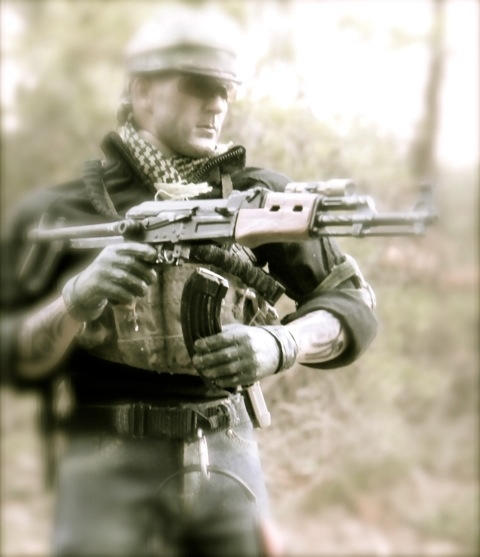 Your “mindset” determines how you perform under stress. This is especially true of personal combat, an extremely dangerous situation. The weapon won’t matter much. Yes, if you carry a weapon it’s necessary to learn how to use it safely and efficiently to defeat the threat. But, ultimately victory relies on mindset. Confidence, the foundation for victory, is created way before the fight starts.
Your “mindset” determines how you perform under stress. This is especially true of personal combat, an extremely dangerous situation. The weapon won’t matter much. Yes, if you carry a weapon it’s necessary to learn how to use it safely and efficiently to defeat the threat. But, ultimately victory relies on mindset. Confidence, the foundation for victory, is created way before the fight starts.
Desire to become responsible drives you to training. Training and research educate you as to the “how, when and why” of self-defense. “Why” is most important. Desire motivates you to practice. Repetition – practice – is when the real learning occurs.
Through practice you improve, but also identify weaknesses. Understanding what you can do is important; knowing what not to do is equally if not more important. You discover the braced kneeling position isn’t stable for you. Now you know not to use it, and what to use in its place. Eventually you reach the point you can solve the problem efficiently using “your” skills, as opposed to mimicking someone else. Confidence – a mental attribute – can only be obtained by understanding your limitations.
You attend Force-On-Force training, using “real” weapons against living, breathing and thinking threats. This tests your skills. You figure out what skills need additional practice. FOF also acclimates you to the stress associated with fighting off an attacker.
Now you’re developing true confidence, which isn’t based on things going perfectly. This is critical, because your self-image and performance are always equal. When doubt is present your performance suffers. Sometimes people express uncertainty about their abilities because their performance is never “Perfect” – and yes that’s with a capital “P.”
You will never be Perfect – capital or small “P” - on the range nor in a fight. In fact, the quest for “Perfect” destroys progress. People get caught up in their mistakes, become frustrated and stop practicing. They’ll keep training, attending classes because it’s fun, only lasts a few days and doesn’t require dedication. But progress - which relies on practice - comes to a screeching halt. Mentally you must be dedicated and disciplined, focused on progress instead of perfect. Progress produces confidence. Knowing you can effectively respond to an attack allows you to stop the threat.
Faith is another important component. Having faith in your skills and abilities is important, but it’s nothing compared to the confidence created through a solid religious foundation. I have faith that I will win. I don’t have to fret over the outcome of the battle. If it is my Lord’s will that I should personally be defeated then I am assured it’s still a victory - towards a greater glory. I cannot lose. Faith creates confidence.
I have all my students write this down: I will win the fight. Then they sign and date it making it official. The only acceptable outcome is victory. No matter what happens – the unexpected occurs constantly in a fight – you must win. Victory is only achieved by cultivating a confident, “winning” mindset. This is done before danger arrives.
Tiger McKee is director of Shootrite Firearms Academy, located in northern Alabama. He is the author of The Book of Two Guns, AR-15 Skills and Drills, featured on GunTalk’s DVD, “Fighting With The 1911 and has regular columns in Gun Digest and American Handgunner.
http://www.facebook.com/pages/Shootrite-Firearms-Academy/156608611038230?ref=ts